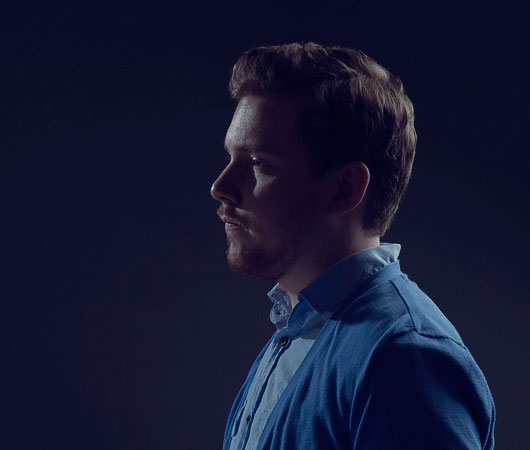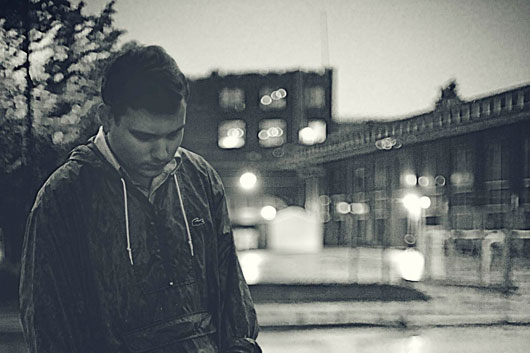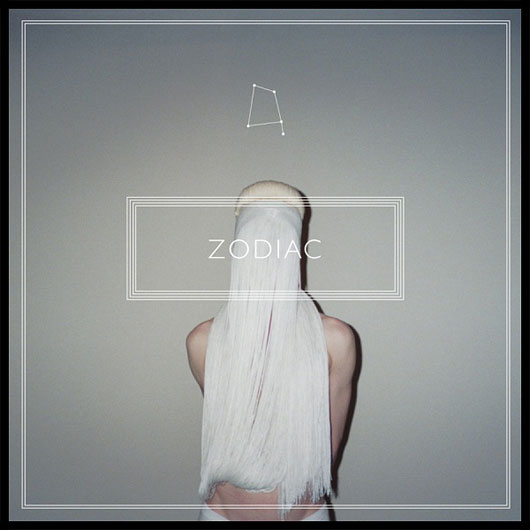Bubblin’ Up: Zodiac
Like many young artists, 23-year-old Canadian producer Zodiac (a.k.a. Jeremy Rose) has a lifelong love […]

Bubblin’ Up: Zodiac
Like many young artists, 23-year-old Canadian producer Zodiac (a.k.a. Jeremy Rose) has a lifelong love […]

Like many young artists, 23-year-old Canadian producer Zodiac (a.k.a. Jeremy Rose) has a lifelong love and appreciation for computers. He remembers being seven or eight years old when his father came home with a Commodore 64, and the experience of gaming and dismantling that old machine with his father turned him on to tinkering with electronics and paved the way for a career in music production. “Once I figured out how to get sound out of them,” he says, “I found something new to do with the computer and just took off with it.”
Rose began making music around 14 or 15. He picked up a guitar and started experimenting with rock music, inspired by an early appreciation for Nine Inch Nails. But he soon realized that making a good rock song required collaborating with other people, and all of his friends were jerks. “I was a jerk too,” he explains. “So it was hard to work with other people.” He soon discovered digital workstations, and quickly abandoned his guitar and band-oriented music for more solitary, computer-based pursuits. “I’ve always found the collaboration thing kind of difficult,” says Rose. “It’s a performance anxiety, like, ‘Ugh, I don’t want you to watch me mess around with stuff because it takes me awhile to get things sounding good.'”
Growing up surrounded by cornfields in a small town in Ontario, Rose didn’t know where he could find an audience for his new sounds—his friends certainly weren’t interested. As a teenager, he hung out with a bunch of metalheads, and the only genre they could find some common ground on was hardcore techno. The best compliment he ever got from his inner circle? “Oh, this actually sounds like music!”
The first person to give his music a chance was his piano teacher—Rose took about six months’ worth of lessons, his only formal training—who enjoyed by his weird sound collages. “It was mostly unlistenable stuff, but he was entertained by whatever I brought in,” he says. At that point, music was still a hobby, nothing he seriously contemplated as a career. “I went through an IDM phase, which wasn’t very well done,” Rose explains. “Then I got into soundscapes, textures. I went through a lo-fi phase.” At this point, his musical vision was clearly far from settled.
After high school, Rose started began working in television as a video editor—he wanted to transition into the film industry—and toyed with photography, but soon decided that those fields required more formal education and training than he was willing to put himself through. “I tried going to school, but I just don’t work well in those environments. In Canada, if you want to do film, there’s just a lot of… work and stuff that I wasn’t willing to do.” He continues, “The music stuff started taking off and I just went with it because it’s the least tedious option.”
His first big break—or what should’ve been, anyway—came after meeting Toronto singer Abel Tesfaye, who was then an American Apparel employee. Rose had envisioned a dark R&B duo as his next project, and after hearing Tesfaye freestyle over some of his beats, he thought he had found the right person for the job.

The first three tracks that they released as The Weeknd, “What You Need,” “Loft Music,” and “The Morning (Original Version),” generated a lot of blog buzz. Drake discovered the tracks and posted them to his blog—and that’s when The Weeknd blew up, with profiles in The New York Times, Pitchfork, and other major publications. But by that point, the project had been rebranded as a solo endeavor of Abel Tesfaye, and The Weeknd’s highly publicized debut mixtape, House of Balloons, attributed production credits to Doc or Illangelo, with Rose’s name nowhere to be found.
By the time Rose was unveiled as the mysterious force behind The Weeknd’s groundbreaking early works and aesthetic, his involvement in the project was already over. He came forward in a now infamous interview with Vice, detailing the creative differences and messy financial disagreements that ultimately ended his involvement with The Weeknd:
“[Abel] was pushing for some things I didn’t want to do, and it got to the point where he wouldn’t respect my opinion. He wanted me to produce for him without any of my input. And I was like, ‘Well then, what’s the point of being a group?’ and he was like, ‘You can just be my producer,’ and I said, ‘Are you going to pay me?’ Then [I realized he was] not going to pay me. That’s why I backed out. I was like, ‘You can have those three or four tracks, I’ll give you the stems, just take ’em, but I don’t want to work with you anymore.’ I was really congenial about it, but I told him, ‘Just make sure that you give me credit,’ and that’s where things went sour.”
Rose won’t talk about the details of the split from The Weeknd anymore; he insists it’s not about bad blood—he’s just moved on, and doesn’t have time or interest in rehashing the past. (His publicist did warn that there was a “very strong chance” Rose would hang up if questioned about the Weeknd drama, though.)

After he got some distance from the Weeknd controversy, Rose started making waves under his own Zodiac moniker. He linked up with fellow Canadian Jacques Greene, the first person to ever remix one of his tracks, and soon signed to Greene’s Vase label. In September, Rose released his solo debut, a dreamy 5-song EP that built on the striking, moody beats that propelled his Weeknd tracks. With the exception of “Come” (which featured Jesse Boykins III), the self-titled release was without vocals. “It was a nice quiet point, so it was a good time to just get some stuff out there because I’m about to get really busy,” he says. “I won’t have much time for solo work for a bit.”
His recent output caught the attention of Paul Epworth, the multi-Grammy-winning producer who’s worked with everyone from Adele and Cee-Lo Green to Bloc Party and The Rapture. Epworth—who’s currently at work on Azealia Banks’ debut LP—got in touch with Rose’s manager, and quickly made Rose the first signee to his brand-new Wolf Tone label.
It seems that perhaps Rose’s time has finally come—he’s certainly on his way to some pretty big things if artists like Epworth are coming out of the woodwork to track him down. He’s fairly secretive about the nature of his upcoming work—at the time of our interview, he was several days away from flying to London to meet with Epworth in the studio—but does reveal that he’s inked a writing deal in which he’s responsible for 16 tracks over the next year, possibly spread over several projects.
“Epworth has a lot of experience doing what he does, and I think he wanted to bring in something different and see where that could take us both,” Rose says. “It’s more fun to mix it up and see what we can do. I’m really excited about it because it’s a completely new experience for me to work with someone like Epworth and the people he’s going to have me meet.” Naturally, Rose is excited, but he hasn’t lost his head. “I don’t really have too many expectations,” he says. “I just want to go in open and learn as much as possible and do my best to make great music.”

